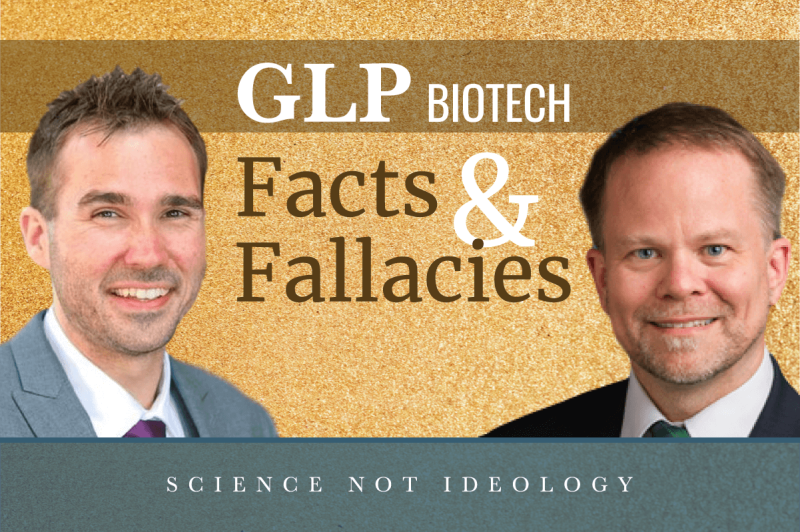Podcast: Play in new window | Download
Subscribe: RSS
Join geneticist Kevin Folta and GLP contributor Cameron English on this episode of Science Facts and Fallacies as they break down these latest news stories:
Scientists have blasted celebrities like Jenny McCarthy and Jim Carrey for blaming autism on vaccines. While Hollywood A-listers have undoubtedly influenced how the public thinks about vaccine safety, recent research indicates that movie stars and models haven’t been as persuasive as many experts believed they would be. What can scientists and educators learn from this development?
Once considered a conspiracy theory, the possibility that SARS-COV-2 escaped from the Wuhan Institute of Virology has gained traction in recent months. Many scientists remain convinced that the pandemic has a natural origin, but unanswered questions about the World Health Organization’s investigation into the initial outbreak in China and evidence that the virus didn’t come from a wet market have forced policymakers to more carefully consider a lab scenario.
Swarms of crop-destroying locusts have devastated several nations in east Africa over the last year, fueling fears that millions of people in these countries could go hungry. Desperate farmers unsuccessfully tried to rid their fields of locusts by lighting tires on fire and blowing whistles to scare the insects away.
Greenpeace has consistently warned regulators to avoid using synthetic pesticides to fight the swarms. But the effected countries have mostly disregarded the activist group’s advice and, as a result, appear to be bringing the crisis to an end. Is this another example of anti-pesticide groups gradually losing their influence in international politics?
Kevin M. Folta is a professor in the Horticultural Sciences Department at the University of Florida. Follow Professor Folta on Twitter @kevinfolta
Cameron J. English is the director of bio-sciences at the American Council on Science and Health. Follow him on Twitter @camjenglish































